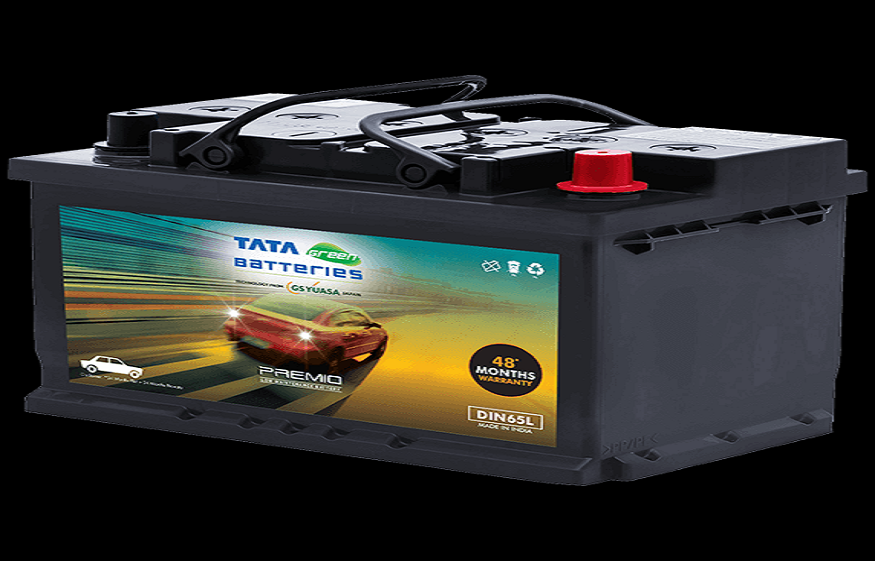Logistics fleets keep India moving from e-commerce deliveries to heavy-duty transport vehicles carrying goods across states.Fleet operators depend on vehicles that can run without interruption. At the heart of every vehicle lies its battery, which powers not only the ignition but also lights, air conditioning, GPS systems and other electronics that drivers rely on during long journeys.
Choosing the right battery for logistics fleets is crucial as downtime due to battery failure can cause delays, extra costs and dissatisfied clients.
In this blog, we will explore what logistics fleet batteries are and how to choose the right batteries for your vehicles.
What Exactly Are Logistics Fleet Batteries?
A logistics fleet battery is designed for the high demands of commercial vehicles used daily, often for extended periods. Unlike personal cars or bikes, logistics fleet vehicles carry heavier loads, cover greater distances and operate in diverse weather conditions across India, from the humid coasts to the dry, dusty highways.
These batteries must deliver consistent power, have longer life cycles and withstand frequent starts and stops. For fleet owners, the battery is not just a spare part but a key factor that determines uptime and operational efficiency.
How Fleet Batteries Outshine Regular Vehicle Batteries
Regular vehicle batteries are built for private use, where the vehicle may run only a few hours a day or sit idle for days at a time. Logistics fleet batteries, on the other hand, face tougher challenges. This is how fleet batteries differ from those in regular vehicles.
- Heavy usage: Fleet vehicles run almost every day with very little downtime.
- Durability: They must handle frequent idling in traffic, long hauls and extreme weather.
- Higher power demand: GPS, cooling systems, sensors and sometimes refrigeration units increase the power load.
- Reduced maintenance needs: For fleet owners managing hundreds of vehicles, less maintenance translates into time and cost savings.
This is why logistics fleet batteries are designed to be more rugged, long-lasting and reliable compared to regular vehicle batteries.
Battery Choices for Logistics Fleets
Logistics fleets usually rely on Lead-acid batteries or Absorbed Glass Mat (AGM) batteries. Both have their own advantages and suit different needs depending on the type of fleet and operating conditions.
Lead-acid Batteries: Tried and Trusted Workhorses
Lead-acid batteries have been around for decades and are still widely used in logistics fleets. Their main strength lies in affordability and proven performance.
Advantages of lead-acid batteries:
- Cost-effective:They are easier on the pocket, especially for large fleets where upfront costs matter.
- Reliable cranking power:They are ideal for vehicles that require robust ignition performance, even in extreme weather conditions.
- Simple maintenance:They only require regular topping up with distilled water to ensure longevity.
- Long life cycle:They can serve well for years with proper care.
Lead-acid batteries are ideal for fleet owners looking for a balance between performance and cost. They work best in fleets where vehicles are used regularly but not under excessive electrical load.
Absorbed Glass Mat (AGM) Batteries: Modern Powerhouses
AGM batteries are a more advanced version of lead-acid batteries designed to meet higher demands. Instead of a liquid electrolyte, they use glass mats to absorb the acid, which makes them spill-proof and maintenance-free.
Advantages of AGM batteries:
- Zero maintenance:These batteries do not need to be topped up with water, saving time for large fleets.
- High power delivery:They can handle modern vehicles with advanced electronics and heavy accessories.
- Longer lifespan: AGM batteries usually outlast conventional lead-acid ones.
- Vibration resistance:They are ideal for rough Indian roads where bumps and potholes are common.
- Faster charging: They recharge quickly, reducing downtime between trips.
Though AGM batteries cost more, they are a smart investment for fleets that require dependable power for high-tech systems, refrigerated trucks or vehicles covering very long routes daily.
Making the Right Choice for Your Fleet
Every logistics fleet is different, so are its energy demands. A delivery van operating within a city has different requirements compared to a highway truck carrying perishable goods across states. Fleet owners should consider the following before choosing:
- Operating environment: Hot weather, hilly terrain or rough roads can affect battery life.
- Power demand: Vehicles with more electronics need batteries with higher output.
- Maintenance capacity: If managing maintenance is difficult, AGM batteries are better.
- Budget: Lead-acid batteries offer a lower upfront cost while AGM batteries provide long-term savings.
The right battery reduces downtime, cuts running costs and ensures smoother fleet operations, which is vital in the competitive logistics sector.
Why the Right Fleet Battery Matters More Than You Think
For a logistics business, time is money. A weak or unreliable battery can lead to vehicle breakdowns, delivery delays and higher repair costs. With customers expecting faster deliveries and 24/7 service, fleet owners cannot afford downtime; hence, choosing reliable commercial batteries, such as those from Tata Green Batteries,will ensure vehicles remain dependable on the road.It improves efficiency, saves money in the long run and strengthens trust with clients.
In short, a strong logistics fleet runs on strong batteries.

